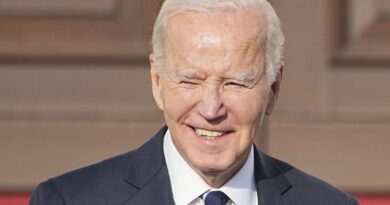JD Vance Was Justified in Criticizing Europe’s Suppression of Free Speech
The recent confrontation Vice President JD Vance had with our European allies encompassed far more than just free speech issues.
This clash represents two conflicting societal visions and opposing variants of democracy, arising from the global tension between the public and established elites.
On February 14, Vance spoke to European leaders at the Munich Security Conference.
While he was anticipated to communicate concerns regarding the Trump administration’s lack of backing for the Ukraine conflict, this topic never materialized.
Instead, Vance delivered a thorough critique of European governance, especially regarding how anti-establishment groups are treated.
Proclaiming, “there’s a new sheriff in town,” the vice president signaled that the US-Europe alliance of elites, which flourished during the Biden administration, is now effectively defunct and not grieved.
The vice president’s address resonated like an ultimatum: “I firmly believe that there is no security if you are apprehensive about the voices, opinions, and conscience that guide your own populace. . . . If you’re running in fear of your own constituents, there’s nothing America can offer you.”
Numerous instances
Vance provided several examples to bolster his critique—such as a Briton arrested for silent prayer near an abortion clinic, Germans fined or imprisoned for sharing memes deemed racist or misogynistic, and the establishment of an ideological “firewall” to keep populist parties perpetually out of power in Germany, France, and beyond.
“To uphold democracy is to recognize that each citizen possesses wisdom and a voice,” he concluded.
“We shouldn’t fear our people, even when they express opinions that contradict their leaders.”
With this statement, the vice president shed light on a significant endeavor that has been conducted quietly, evading polite discourse.
Both the US and Europe pride themselves on belonging to a collective of democracies.
Yet, the US is currently under the influence of a prominent populist, Donald Trump.
Conversely, the European Union and numerous member states are primarily under the control of technocratic elites.
Do both parties share the same interpretation of “democracy”—the same political framework and individual safeguards—when they employ that term?

Compared to the US, Europeans have significantly shifted the power balance in favor of the state over individual citizens.
For instance, in Germany and France, publicly mocking elected officials might lead to encounters with law enforcement.
This has been a longstanding issue.
European politicians have historically harbored skepticism towards their electorates, perceiving them as easily swayed mobs susceptible to national biases and violent outbursts.
The goal of the elite is to maintain control over voters for the sake of societal stability.
The digital age has created chaos for entrenched hierarchies and authorities. Massive grassroots movements, such as Spain’s Indignados and France’s Yellow Vests, have shaken rigidly hierarchical societies.
Populist politicians have gained office in Hungary, Italy, the Netherlands, Austria, and Slovakia.
Populist parties, often labeled as “far right” by the European press, have garnered significant electoral support in France, Germany, Britain, and Sweden.
In contrast, traditional parties, long associated with elites, are in a clear state of decline.
The ruling coalition in Germany has just been ousted from power.
Emmanuel Macron’s technocratic party faced defeat in legislative elections, resulting in political paralysis in France.
The approval rating for the Labour Party government in Britain currently sits at a mere 16%.
In alarm and disarray, feeling besieged, European elites have sought to create an unassailable political stronghold against the onslaught of digital upheaval.
Quietly, they have retreated from the concept of an open society to devise what I term a “guided society,” where a complex web of laws, regulations, and political strategies permits elites to function as navigators for the public, steering it consistently toward favored policies—such as open immigration, decarbonization, and unconditional support for Ukraine.
They have lost confidence in conventional democracy and shifted toward a “limited-option democracy” that sidelines populism and permits only a narrow range of electoral outcomes.
Criminalizing dissent
Unfavorable opinions are being criminalized.
Social media “standards” have been enforced that silence platforms and incur hefty penalties for violations.
Law enforcement in nearly every European country monitors websites and devices for speech offenses.
Ordinary citizens have faced legal repercussions, fines, and, at times, imprisonment for merely sharing controversial opinions about immigration or abortion.
Populist parties have been ostracized and excluded from governance—even when, as seen in Austria, they secured the highest vote counts.
Limited-option democracy culminated in December in Romania, where the Constitutional Court, under dubious pretenses, annulled the first round of a presidential election won by a pro-Russia populist.
This situation highlighted the inherent contradiction within this nascent system: safeguarding democracy involved nullifying electoral results.
The European Union, known for criticizing Hungary’s populist regime as authoritarian, endorsed Romania’s cancellation of a democratic vote—possibly even influencing that decision.
Former Commissioner Thierry Breton boasted of the EU’s authority to support or reject elections based on their outcomes.
“We must prevent interference and enforce the law,” Breton commented, referring to alleged Russian meddling.
“We executed this in Romania, and we will obviously need to do it in Germany, if necessary.”
This pivot away from an open society toward a system reminiscent of China’s “social credit scores” attracted sharp rebuke from Vance in Munich.
He condemned the hypocritical nature of limited-option democracy, insisting it fell short of genuine democracy.
However, the vice president addressed his audience across a chasm of misunderstanding.
He advocated for democratic principles like freedom of expression and the integrity of the voting process.
To the Europeans, it was as though they were trapped in a dystopian nightmare, hearing only the voice of populism in authority, challenging the constructed safe spaces they held dear.
The well-dressed conference attendees appeared too bewildered to express indignation.
Boris Pistorius, defense minister in Germany’s recently unseated government, expressed that Vance’s remarks were “not acceptable”—a revealing choice of phrasing. One can speculate that had Vance been a German citizen, he would have faced censorship and fines.
The crux of the issue extended beyond mere friction among allies or the potential disintegration of a historically dominant security alliance.
This dispute pertains to the fundamental essence and execution of democracy.
From one perspective, censoring “disinformation” and criminalizing heretical thought are necessary to thwart the rise of the “far right”—a collection of racists, xenophobes, and neo-Nazis who would jeopardize democracy and plunge society into chaos.
And only the elites—according to their own narrative—possess the science and knowledge requisite for discerning truth from falsehood, right from wrong.
Conversely, those on the other side—the “normies”—argue that the tumult of the digital era should not compel a departure from enduring principles such as freedom of expression and equality for all citizens at the ballot box.
The lines in this conflict are far from straightforward, as they do not simply divide the US and Europe.
Every measure Vance criticized at Munich has been enthusiastically upheld and endorsed by the Biden administration, as acknowledged by the vice president himself.
With The New York Times leading the charge, the US media framed Vance’s comments as a bouquet to Europe’s crazed populist right—essentially “dangerous” but rising factions like Alternativ fur Deutschland (AfD) in Germany.
“Vance Urges Europe to Cease Discriminating Against Ascribed Extreme Parties,” read a headline from the Times.
“Mr. Vance’s statements mirrored those of hard-right leaders throughout Europe,” another Times article noted.
On “Face the Nation,” CBS’s Margaret Brennan claimed that Vance, while in Munich, “stood in a nation where free speech was weaponized to facilitate genocide.”
Brennan’s thesis proposed that freedom culminated in genocide, and that the open society bore responsibility for Nazi atrocities.
In a striking segment of “60 Minutes,” also aired on CBS, host Sharyn Alfonsi nodded with admiration during a dialogue about how “Germany confronts online trolls. Here’s how the country combats hate speech online.”
Germany, it turns out, fights hatred by deploying police squads to intimidate individuals in their homes who have shared controversial memes.
A censorship advocate was featured explaining that free speech “must have boundaries.”
Otherwise, “a minuscule group might take advantage of boundless freedom to express anything they desire.”
During an utterly surreal interview, Alfonsi engaged with three German prosecutors who laughed heartily as they recounted the various ways they could silence and penalize everyday citizens for their online indiscretions.
Clearly, both The New York Times and CBS aspire to attain the status of sherpas, guiding society and erecting boundaries against “endless freedom.”
American ‘inquisitors’
American media seems to share more commonality with German speech inquisitors than with the free-spirited “normies” who elected Trump.
This is the nature of the current conflict, which traverses national boundaries and digital platforms.
The outcome remains uncertain.
Until just recently, the elites were commanding all the institutional advantages in both the US and Europe and appeared poised to actualize their vision of a compliant, easily directed society and a democracy that poses no threat to the status quo.
Then, in a twist of historical irony, the results of our presidential election threw everything into disarray.
The conclusion of this story will hinge entirely on the trajectory and successes of the Trump revolution.



